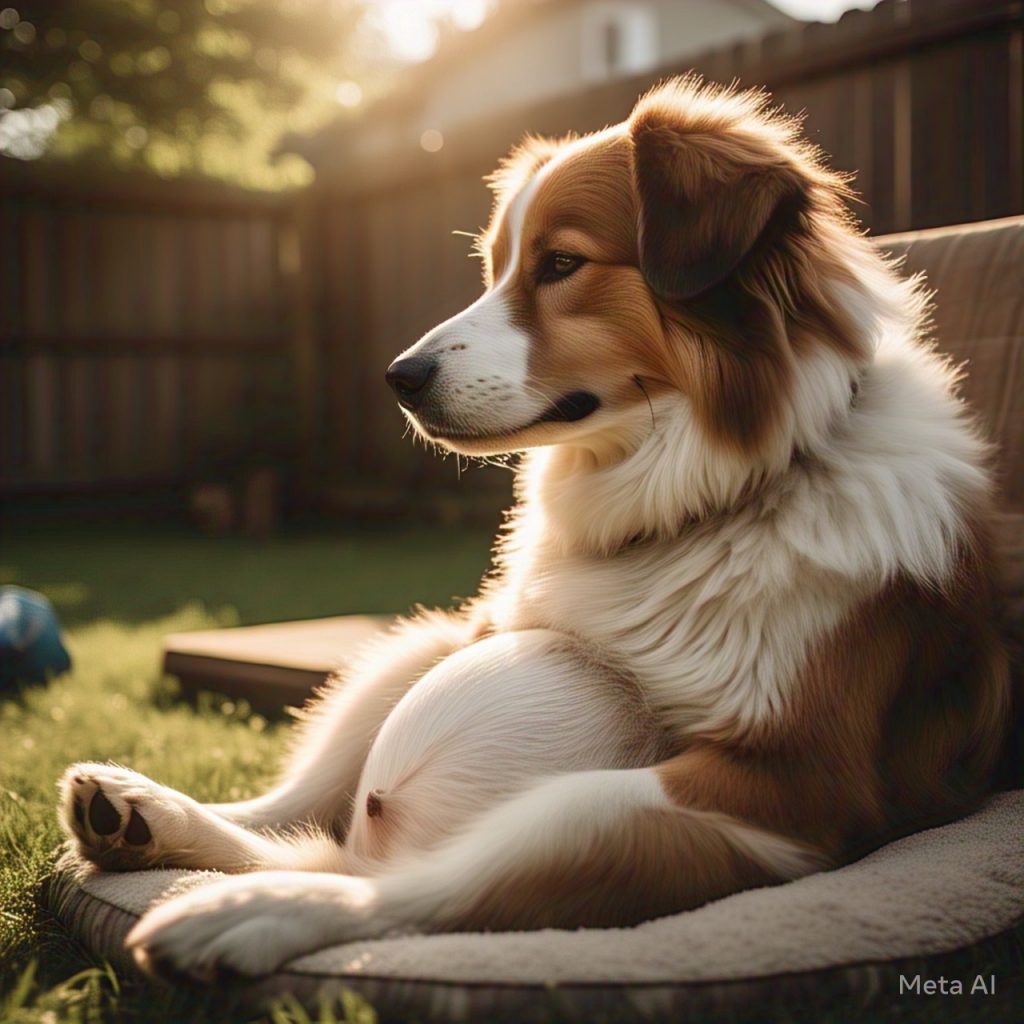One of the most important aspects of female dog reproduction is understanding the stages of dog heat and how it changes over time. Unlike humans, female dogs do not go through menopause and can experience heat cycles throughout their lives. However, the frequency and intensity of these cycles can change with age.
In this article, we’ll break down:
✔️ At what age a dog stops going into heat
✔️ How long does a dog stay on heat for
✔️ How long do dogs usually stay in heat
✔️ A full breakdown of the dog heat cycle
Understanding the Stages of Dog Heat (Estrus Cycle)
The dog heat cycle, also known as the estrous cycle, is the reproductive cycle of female dogs. It generally starts between 6-12 months of age, though this can vary by breed.
The 4 Stages of the Dog Heat Cycle
1️⃣ Proestrus (Pre-Heat Phase) – Lasts 7-10 Days
-
Swollen vulva
-
Bloody discharge (initial spotting)
-
Increased urination
-
Males are attracted, but the female is not receptive yet
2️⃣ Estrus (Fertile Phase) – Lasts 5-14 Days
-
Lighter-colored discharge (pink or straw-colored)
-
Female is receptive to males and may show mating behaviors
-
Ovulation occurs (usually between days 10-14 of the cycle)
3️⃣ Diestrus (Post-Heat Phase) – Lasts 60-90 Days
-
The female is no longer receptive
-
Hormonal changes occur whether or not pregnancy happens
-
False pregnancy symptoms may appear (nesting, lactation)
4️⃣ Anestrus (Resting Phase) – Lasts 3-6 Months
-
No signs of heat
-
The reproductive system resets before the next cycle begins
Key Takeaway:
Most female dogs experience a heat cycle every 6 months, but some large breeds may only have one cycle per year.
How Long Do Dogs Usually Stay in Heat?
The entire heat cycle lasts between 2 to 4 weeks, with the fertile period occurring around days 10-14.
✔️ How long does a dog stay on heat for? – Typically 2 to 3 weeks
✔️ How long do dogs usually stay in heat? – The full cycle, including rest periods, can last several months
✔️ Can heat cycles vary? – Yes, larger breeds tend to have longer cycles with more time between heats
At What Age Does a Dog Stop Going Into Heat?
Unlike humans, dogs do not go through menopause. They continue to experience heat cycles throughout their lives, though they may become less frequent and less intense as the dog ages.
Factors Affecting Heat Cycles in Older Dogs:
✔️ Breed Size: Small breeds cycle more frequently than large breeds
✔️ Age: Senior dogs may have irregular heat cycles
✔️ Health: Conditions like hypothyroidism can affect the cycle
When Do Heat Cycles Slow Down?
🔹 Small Breeds: May experience regular cycles even into old age
🔹 Medium Breeds: Heat cycles may become irregular after 7-8 years
🔹 Large & Giant Breeds: Some dogs may stop cycling regularly by age 6-7
Key Takeaway: A female dog may never fully stop going into heat, but cycles may become less frequent, less fertile, and more unpredictable as they age.
What Happens if a Senior Dog Goes Into Heat?
If an older dog continues to experience regular heat cycles, it’s essential to monitor her for health concerns such as:
❌ Pyometra: A life-threatening uterine infection common in older unspayed females
❌ Increased Risk of Mammary Tumors: The more heat cycles a dog has, the higher the risk
❌ Pregnancy Risks: Older dogs may have complications if they get pregnant
👉 Spaying an older dog can significantly reduce these risks!
Spaying & Its Effect on the Dog Heat Cycle
Spaying (ovariohysterectomy) is the only way to stop heat cycles permanently. It involves removing the ovaries and uterus, preventing further reproductive cycles.
Benefits of Spaying:
✔️ Eliminates heat cycles permanently
✔️ Reduces the risk of mammary cancer and pyometra
✔️ Prevents unwanted pregnancies
✔️ Can lead to a calmer temperament
📌 Best Time to Spay: Most vets recommend spaying before the first or second heat cycle to maximize health benefits.
Final Thoughts: Understanding the Dog Heat Cycle & Aging
🔹 At what age does a dog stop going into heat? – Dogs don’t go through menopause and can have cycles for life, though they may become irregular with age.
🔹 How long do dogs usually stay in heat? – The cycle lasts about 2-4 weeks, with fertile days occurring between days 10-14.
🔹 How long does a dog stay on heat for? – The active estrus phase lasts around 5-14 days.
🔹 How long is the dog heat cycle? – The full reproductive cycle (including resting phases) can last several months, occurring roughly twice per year.
For pet owners looking to prevent unwanted pregnancies and health risks, spaying is the best long-term option. If you choose to keep your dog intact, it’s essential to monitor her cycle, especially as she ages.
By understanding the stages of dog heat and how it affects your pet, you can provide the best care possible—ensuring a healthy and happy life for your furry friend! 🐶💖

